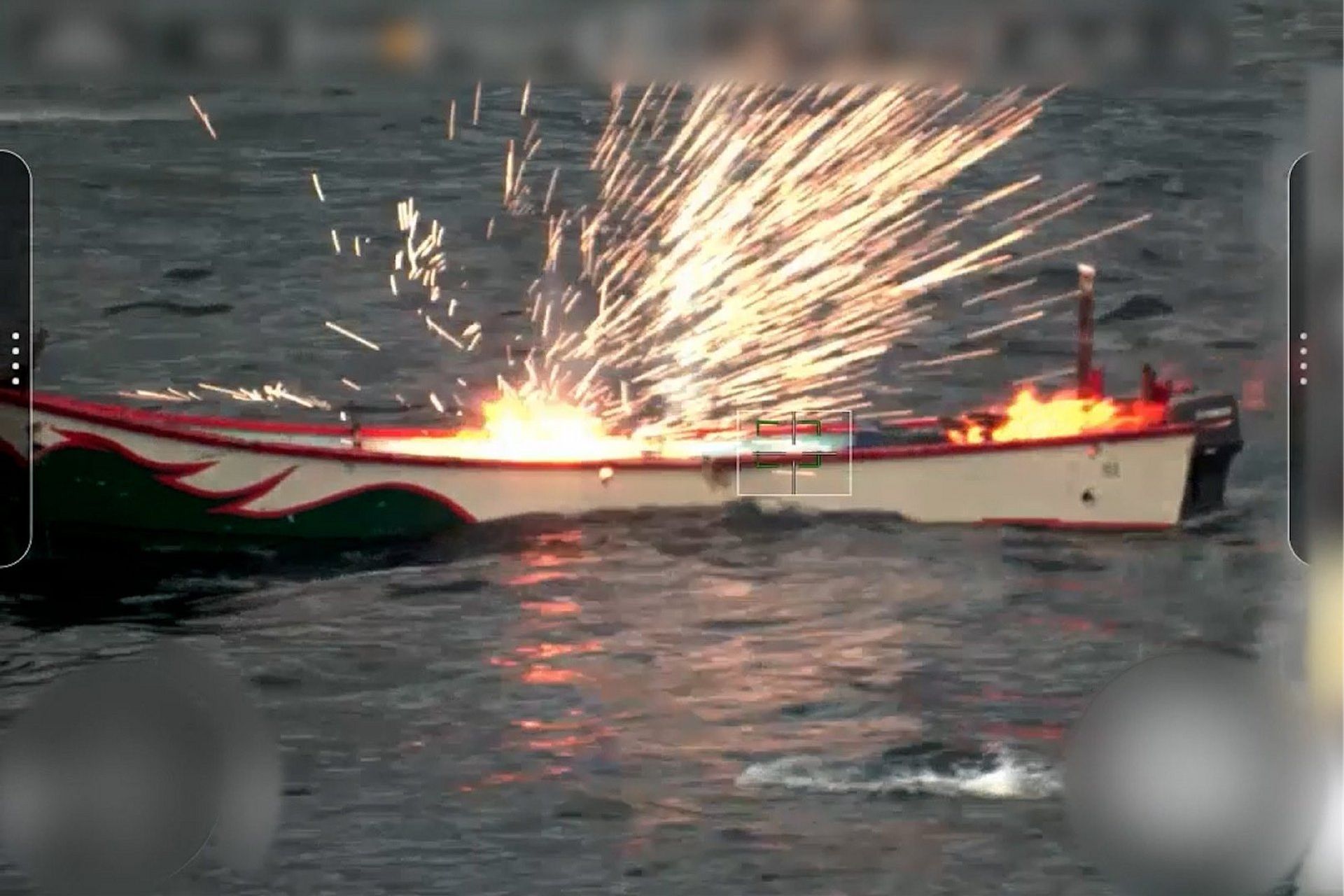Breaking News
French frigate rescues crew from attacked oil tanker Sounion in Red Sea near Yemen.
According to information published by the French MoD on August 23, 2024, the Liberian-flagged oil tanker Sounion, owned by a Greek shipping company, was targeted in two separate attacks carried out by small boats in the Red Sea, off the coast of Yemen.
Follow Army Recognition on Google News at this link

The Houthi naval drone loaded with explosives. (Picture source: French MoD)
The incidents resulted in a major fire in the ship's engine room and caused significant flooding, leaving the vessel without power and adrift. A French frigate, operating under the European Union's ASPIDES mission and coordinated with French military headquarters stationed in the United Arab Emirates, was dispatched to assist the stricken vessel.
Upon reaching the area, the frigate detected another imminent attack, this time involving a naval drone loaded with explosives targeting the Sounion.
The French frigate successfully thwarted the drone attack by neutralizing the explosive-laden vessel, preventing further damage to the tanker. Subsequently, the frigate's crew carried out the evacuation of all 29 members of the Sounion's crew. The tanker Sounion is currently anchored in international waters, pending further assessment and potential salvage operations.
Houthi naval drones
The Houthis, an Iran-aligned rebel group in Yemen, have increasingly employed unmanned surface vessels (USVs) in the Red Sea as part of their maritime operations. These USVs are typically explosive-laden drone boats designed to target commercial and military vessels navigating through the region's critical shipping lanes.
While these vessels are often assembled in Yemen, they are believed to be equipped with advanced components supplied by Iran, such as guidance systems.
The threat posed by these USVs has prompted international responses, with the United States and its allies conducting several defensive operations to neutralize the vessels before they could cause damage. These incidents have significantly impacted the safety and insurance costs of maritime transit in the Red Sea, forcing some shipping companies to reroute their vessels around the southern tip of Africa, bypassing the region entirely.
























